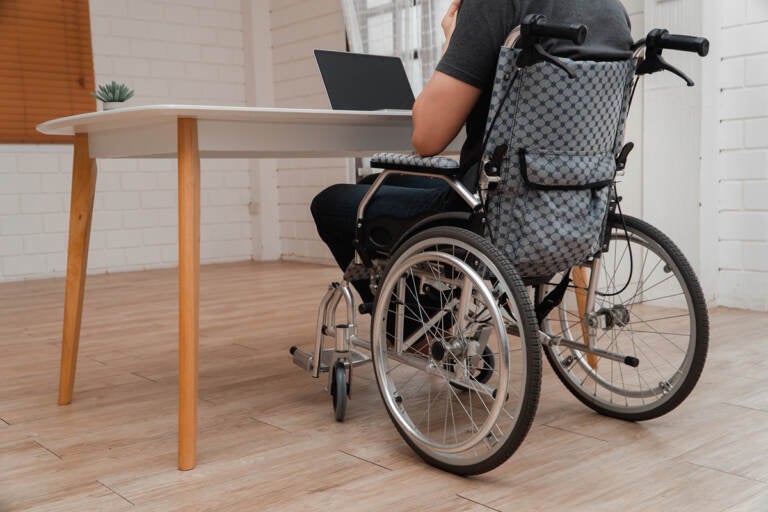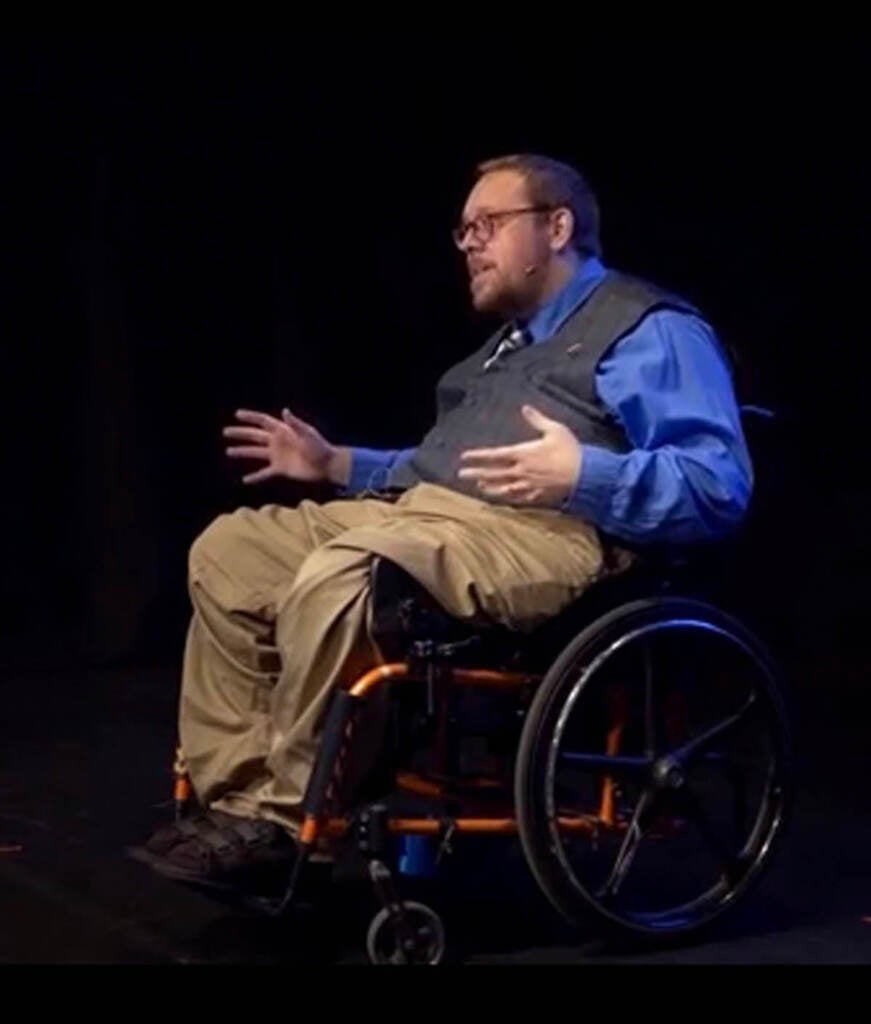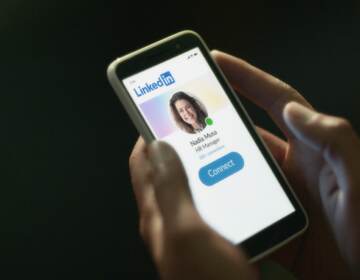Will remote work become more of a long-term option for workers with disabilities?
Employers typically resisted alternatives for workers with disabilities. But the pandemic turned the idea from special accommodation into everyday practice.
Listen 11:29
(Prot56/Bigstock)
This story is from The Pulse, a weekly health and science podcast.
Subscribe on Apple Podcasts, Spotify or wherever you get your podcasts.
Writer Elsa Sjunneson started looking for a long-term job after college, but during the interview process, she realized she would encounter problems.
“I’ve been told by some companies that they would have hired me, but they couldn’t. I couldn’t work in an open office, and that was against their culture … they couldn’t give me an office to work from.”
Sjunneson is deaf-blind; she carries a white cane, and wears high-index lenses and bilateral hearing aids.
An open office layout just does not work for her, she said: She needs to be in a place where people cannot approach her from her blind eye, which is unsettling. Also, hearing aids amplify sound, which include the sound of everyone else typing, or people leaving for lunch.
She can learn to filter out that noise, but it takes effort. If she were at home, she could make the space work for her — shut the door, or play some music, or take her hearing aids out.
She would explain this to prospective employers, but they still said no, she recalled.
“‘That would harm our office culture by treating you differently’ is more or less what I was told,” she said. “This is just a micro-example of the way that we treat accommodations in general, because it’s the idea that … it’s a special accommodation that somebody needs to be taken care of, instead of recognizing that everybody works differently.”

In interviews with several people with disabilities, all of them echoed that kind of experience — almost no flexibility for working-from-home accommodations. Recent research from the legal sector in the U.K. found that remote work is the most requested but most refused accommodation for people who are disabled. Some workers with disabilities have sued for remote work options under the Americans with Disabilities Act, but courts and judges have generally sided with the employers who refuse those accommodations.
Researcher Jason Olsen said that’s because “employers and businesses are so resistant to change that they go to the furthest extreme to fight it.”
Olsen used to work for the Social Security Administration and later the Department of Labor in the Washington, D.C., area. He became paralyzed from the chest down because of a spinal cord injury, so he uses a wheelchair.
To get to work, he needed to arrive at a Metro station as early as 6 a.m. for a disability parking spot. Sometimes, he would have to go to a different Metro station if the elevator was broken. Sometimes, he would need personal care in the evenings to address the skin problems that can result after sitting in a wheelchair all day.
“It is quite a lot of work being disabled,” Olsen said.

Part of his work was to talk to other federal agencies and explain disability policies and why employers should grant accommodations to people with disabilities according to laws and regulations, “just to go back to the office where I worked, and I’d have to fight for my own reasonable accommodations,” he recalled.
Neither the Social Security Administration nor the Department of Labor responded to requests for comment for this article.
Subscribe to The Pulse
Why are employers reluctant to accommodate people with disabilities?
Mason Ameri, an associate professor at Rutgers Business School, said it’s due to employers not understanding how to work with people with disabilities, and being prejudiced against them.
“Oftentimes, employers perceive workers with disabilities as just straight-up less productive and costlier due to accommodations,” he said.
Ameri and his colleagues tested this in an experiment in 2015. They sent out identical resumes for accountant positions, the only difference being that some resumes mentioned people having a disability and some did not. Researchers chose disabilities that would not affect the work of an accountant, to isolate the effects of bias. They found that companies were 26% less likely to be interested in job applications that mentioned disabilities.
The remote-work landscape shifts suddenly
In March 2020, the pandemic forced many employers to let office workers do their jobs from home. Jason Olsen said it was eye-opening to see that “when it wasn’t just disabled people that needed it, when everybody needed it, then it was something that can be done.”
“Some of these policies are put in place with no real foundation or science or evidence behind them. They’re very much just opinion-based,” he said.
Elsa Sjunneson, like some other advocates, is angry.
“It took a literal global pandemic for society to say, ‘OK, you can work from home so that we don’t all get sick.’ But … there are disabled people I know who have literally been cut out of the workforce because they cannot leave their homes because they will get sick.”
Cheryl Bates-Harris, senior disability advocacy specialist at the National Disability Rights Network, has been handling such work-related issues for years. She said those without disabilities should not think of people who are disabled as a different category of the population.
“We are all just a slip and fall away from a disability,” she said.
In the 1980s, Bates-Harris was a driver’s license examiner. She had a head-on collision on a motorcycle that damaged her legs, and she was in the hospital for months. Recovery took more than a year. She lost her job in the meantime.
“They said, ‘You’re welcome to come back in and reapply when you’re able,’” she recalled, adding that she never got the choice to work from a desk or talk about how she could do her work while recovering.
“I felt that was so unfair because I was not suddenly incompetent, I was injured, I was hurt … it took time for bones to heal.”
She said the pandemic has made it clear that people can work from home for more than a year with the proper equipment. So she hopes companies will no longer deny people with disabilities when they ask for that accommodation.
WHYY is your source for fact-based, in-depth journalism and information. As a nonprofit organization, we rely on financial support from readers like you. Please give today.







